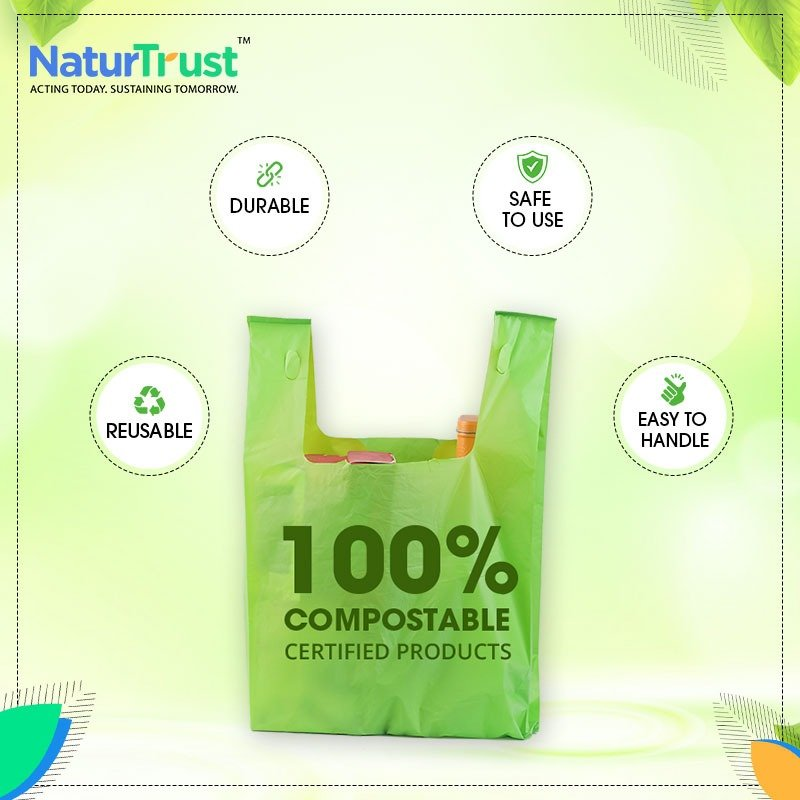Use Compostable Shopping Bags And Contribute To Global Health
Compostable shopping bags are gaining attention amid the rising concerns about environmental pollution and their adverse effects on human life. Many countries across the globe are making efforts to reduce the use of conventional synthetic plastic. Packaging and carrier products, among domestic and non-domestic commodities, are indispensable and most consumed in everyday human life. Before we get into the advantages of compostable retail bags, let us know more about ones made of synthetic plastic.
What are Synthetic Plastics?
Synthetic plastics are polymers produced from their respective monomers through chemical reactions under controlled conditions.
Natural polymers, such as carbohydrates and proteins, undergo degradation when exposed to microbes. Hence, these are biodegradable. It is how wet waste from plants (for example, vegetable wastes) and animals turn into manure. But synthetic plastics do not break down as they are resistant to microbial enzymes and thus remain intact forever.
What is Their End Game?
These plastics, upon disposal, encounter changing physical environments, such as wind, heat, and friction, when they rub against hard surfaces. Consequently, they lose their physical stability and start withering into small pieces. These small pieces merge with soil and break down into microscopic particles called microplastics. They seep into the ground and enter the food chain.
Animals that scavenge worms or crawlies pick up these particles on them. Plants absorb them and house them in green leaves, fruits, and vegetables. In water bodies, fishes and other aquatic animals ingest the particles. Every year, about 8 million tons of plastic waste make it into oceans. When we consume food prepared from these edibles, they enter our bodies.
What Do They Do To Our Bodies?
Since our bodies do not have enzymes that can break and excrete them, they are set free. They interact with various enzymes and interrupt normal body functions. Eventually, it results in diseases corresponding to the enzyme system that interferes.
How is Compostable Plastic Different?
Like synthetic plastic, compostable plastics are also polymers but are not resistant to microbial degradation. A compostable shopping bags disposed of in soil retains its shape only for its shelf life. Microbes break the polymers and release plastic-specific products and nontoxic by-products, such as carbon dioxide and water.
How Do compostable Shopping Bags Help?
Today with the rising popularity of compostable plastic, manufacturers are improvising compostable plastic products for better usability.
NaturTrust's compostable shopping bags are top quality, 100% biodegradable, and compostable and can serve industrial and domestic purposes. They are as thin as 15 microns and can contain objects of up to 20 Kg. Their bags are available in different colors and can have customized logos or designs printed on bags. Other qualities of the products are
- tear resistance and leakproof
- strong and elastic
- reusable as garbage bags
- breathability: allow air to pass through
- long durability
- free of GMO materials
Visit here for more details about their compostable shopping bags and other products.
Our Source Url: https://sites.google.com/view/compostable-shopping-bags/home



Comments
Post a Comment